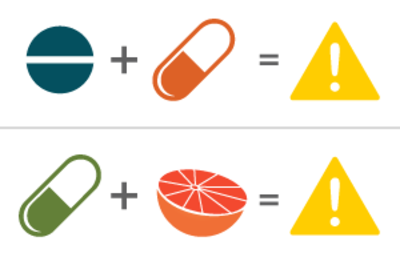Drug Dosing Knowledge
- Home
- Drug Dosing Knowledge

Sharing
Drug Dosing Knowledge
People in Hong Kong, similar to the ones in any metropolis, are very busy day in and day out. We are always stressed, eating too much, with less rest. These make us vulnerable to many common diseases such as hypertension, diabetes, influenza, overweight, insomnia and even manic disorders. Therapy must be made according to the advice and diagnosis by physicians, with the application of the appropriate drugs.
There are acute and chronic drug treatments for different diseases. The dosing scheme is adjusted according to the characteristics of the drugs and the specific needs of each patient. In general, acute drug treatments are more frequently applied on a daily basis e.g. analgesics are applicable 3-4 times a day. On the other hand, chronic treatments of drugs, such as antihypertensive drugs, lipid lowering drugs and antidepressants, are often given once daily. Most of them are lifelong treatments. Patients would find this arrangement more convenient and they are more reluctant to be compliant to the drug treatment, for a prolonged period.
Drug compliance is important as this maintain a therapeutic drug level within our body. As a result, drugs can exert their effects to restore our bodily functions. Correct dosing can also limit the side effects or prevents any serious adverse effects of drugs. Any changes on the dosing scheme would certainly affect the therapeutic response of the drug. It can lower the efficacy of drug treatment and even bring about serious consequences. For example, early discontinuation of antibiotic treatment may results in the emergence of antibiotics-resistance. Besides, sudden halt of antidepressant treatment may produce psychological withdrawal symptoms. Therefore patients need to follow the medication order given by medical professionals. Patient’s family also needs to closely monitor the conditions of the patients and seek for medical advice immediately when there is abnormal drug response.
There are acute and chronic drug treatments for different diseases. The dosing scheme is adjusted according to the characteristics of the drugs and the specific needs of each patient. In general, acute drug treatments are more frequently applied on a daily basis e.g. analgesics are applicable 3-4 times a day. On the other hand, chronic treatments of drugs, such as antihypertensive drugs, lipid lowering drugs and antidepressants, are often given once daily. Most of them are lifelong treatments. Patients would find this arrangement more convenient and they are more reluctant to be compliant to the drug treatment, for a prolonged period.
Drug compliance is important as this maintain a therapeutic drug level within our body. As a result, drugs can exert their effects to restore our bodily functions. Correct dosing can also limit the side effects or prevents any serious adverse effects of drugs. Any changes on the dosing scheme would certainly affect the therapeutic response of the drug. It can lower the efficacy of drug treatment and even bring about serious consequences. For example, early discontinuation of antibiotic treatment may results in the emergence of antibiotics-resistance. Besides, sudden halt of antidepressant treatment may produce psychological withdrawal symptoms. Therefore patients need to follow the medication order given by medical professionals. Patient’s family also needs to closely monitor the conditions of the patients and seek for medical advice immediately when there is abnormal drug response.








